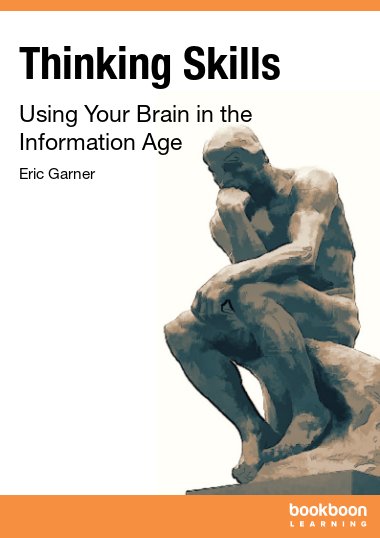Thinking Skills are some of the most valuable skills you can learn today. The reason is simple. While in the past, people went to work for their manual skills, today they go to work for their mental skills. We live in an Information Age, no longer an Industrial Age. That’s why brain has replaced brawn, and strength in thinking has replaced strength in muscles. No matter what kind of business you work for, nor what kind of job you do, today you are expected to apply a range of thinking skills to the work you carry out. This includes using your judgment; collecting, using, and analyzing information; working with others to solve problems; making decisions on behalf of others; contributing to ideas to innovate and change; and being creative about how your job can function better.
This book covers all of these skills. It will show you that, whatever you think about your mental abilities or the level of your IQ or your formal education, your brain is the most powerful organ you possess. It is the tool that, if used skillfully, can help you perform better in your job, better in your team and better in your organization. By developing your thinking skills to meet the needs of the modern world, you are guaranteed to succeed.

